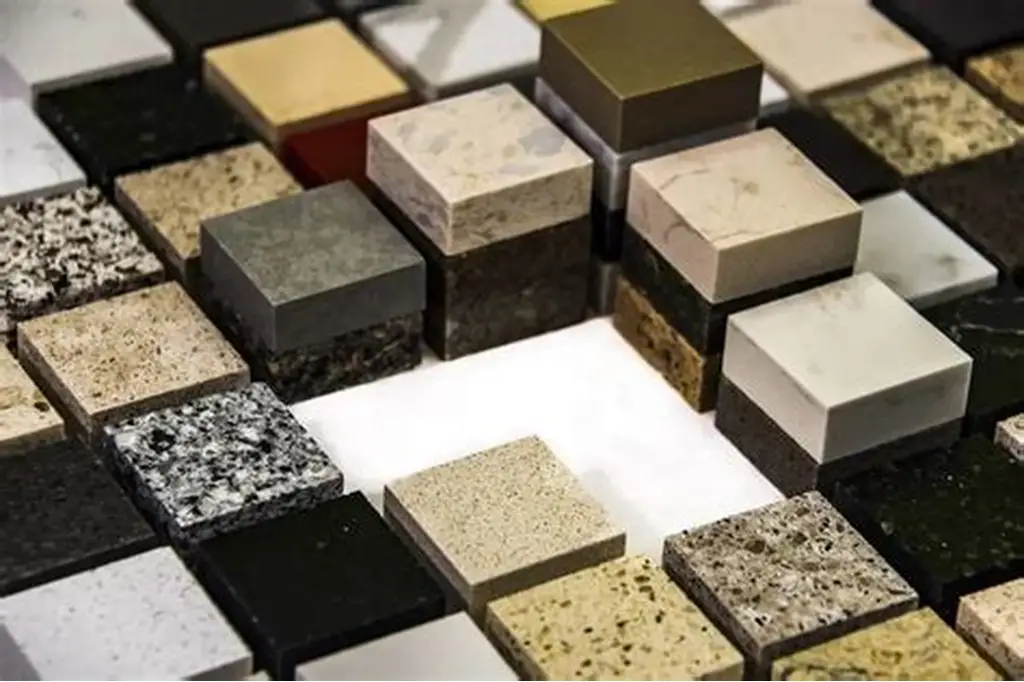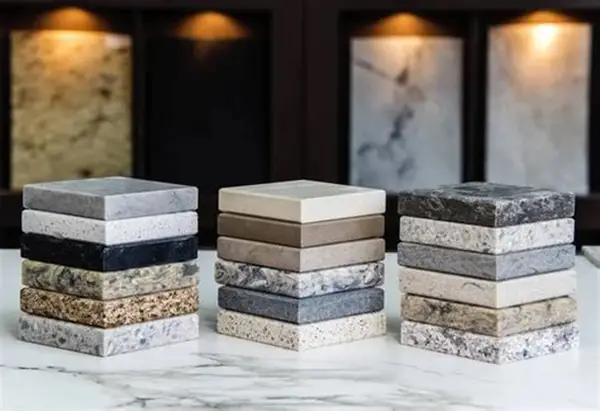Quartz countertops are a popular choice for both residential and commercial spaces thanks to their durability, beauty, and versatility. One critical factor that often influences a countertop’s performance and appearance is its thickness. Whether you’re planning a kitchen remodel, upgrading a bathroom vanity, or selecting slabs for a commercial installation, understanding the available quartz thickness options is essential.
In this detailed guide, we’ll explore the typical thicknesses of quartz countertops, how they affect design and performance, and tips to help you choose the right one for your project.
👉 Related Reading: What Are Quartz Countertops?

Why Quartz Countertop Thickness Matters
Quartz countertops aren’t one-size-fits-all. The thickness you choose impacts everything from aesthetics and structural support to cost and installation methods. Thicker quartz countertops offer more substantial visual weight and durability, while thinner profiles provide a sleeker, modern appeal.
Factors that thickness influences include:
- Weight (and therefore support requirements)
- Edge profile choices
- Price per square foot
- Installation difficulty
- Overall durability

Standard Quartz Countertop Thickness Options
1. 1 cm (10mm / ~⅜ inch)
Ultra-thin quartz slabs are the lightest and typically used for vertical surfaces like walls or backsplashes rather than horizontal countertop surfaces. This thickness lacks the structural integrity for unsupported spans and is rarely used for kitchen worktops.
2. 2 cm (20mm / ~¾ inch)
This is a common thickness for quartz bathroom countertops or vanities. It provides a sleek, European-style look while maintaining sufficient strength for most residential applications.
Key features:
- Lighter than 3 cm slabs
- Often used with plywood support underneath
- Typically mitered to appear thicker
3. 3 cm (30mm / ~1¼ inch)
The most popular choice for quartz kitchen countertops, 3 cm slabs offer both visual impact and structural integrity. This thickness can be installed without additional underlayment, making it ideal for islands and heavy-use surfaces.
Advantages:
- No plywood support needed
- Greater strength and impact resistance
- More substantial, luxurious appearance
👉 Learn more: How Do They Make Quartz Countertops?
Choosing the Right Thickness for Different Spaces
Quartz Kitchen Countertops
For durability and aesthetics, 3 cm thick slabs are the top recommendation for kitchen surfaces. They stand up to daily wear and tear, provide flexibility in edge design, and offer a high-end appearance for modern or traditional kitchens.
Popular styles:
- White quartz countertops for bright, clean designs
- Black quartz countertops for contrast and drama
- Marble look quartz countertops that offer elegance without maintenance
Quartz Bathroom Countertops
In bathrooms, where weight and durability are less of a concern, 2 cm slabs are often the best choice. They are thinner, lighter, and still deliver all the aesthetic appeal of thicker options.
Waterfall Islands and Vertical Applications
If you’re installing a waterfall island or quartz backsplash, consider matching the thickness of the countertop slab or using a 1 cm for vertical surfaces only.
Aesthetic Implications of Quartz Thickness
The thickness you choose affects more than structure—it also plays a huge role in visual balance and design style.
- Modern, minimalist kitchens often favor slimmer profiles (2 cm).
- Traditional or luxurious spaces may lean toward the bold edges of a 3 cm slab.
- Edge profiles like bevel, ogee, or bullnose are more pronounced with 3 cm slabs.
👉 Want to lift and place slabs efficiently? Check out this paver lifter.
How Thickness Impacts Cost
The Quartz countertop installation cost varies based on several factors, and thickness is a key one. 3 cm slabs cost more due to their material weight and ease of installation without added support. However, when factoring in the savings on underlayment and labor, the cost difference may even out.
| Thickness | Typical Price per Sq. Ft. Installed |
|---|---|
| 1 cm | $45–$60 (rarely used for countertops) |
| 2 cm | $50–$70 |
| 3 cm | $60–$100+ |
👉 Explore: Quartz vs. Granite Cost Comparison?
Installation Considerations by Thickness
2 cm Slabs:
- Require plywood or substrate base
- More fragile during transport
- Ideal for smaller spaces like powder rooms or minimalist kitchens
3 cm Slabs:
- Stronger and easier to install directly on cabinets
- No need for reinforcement
- Recommended for high-traffic areas and large islands
👉 Related: How Long to Wait After Sealing Granite Countertops?
Quartz Thickness Trends for 2025 and Beyond
Modern trends show increasing interest in:
- Veined quartz countertops for a marble-like aesthetic
- Grey quartz countertops paired with wood tones
- Budget quartz countertops in thinner options for cost savings
- Custom quartz countertop installers offering dual thickness for countertops and backsplash
Conclusion: What’s the Ideal Quartz Thickness for You?
The answer depends on your space, budget, and design goals. For kitchen durability and style, go for 3 cm quartz slabs. For bathroom vanities or backsplashes, 2 cm works perfectly. And for accent walls or ultra-modern designs, 1 cm quartz is your lightweight, stylish solution.
Whether you’re searching quartz countertops near me, exploring local quartz countertop showrooms, or deciding on the best quartz countertops for kitchens, understanding thickness will help you choose the perfect fit.
👉 Dive deeper:

